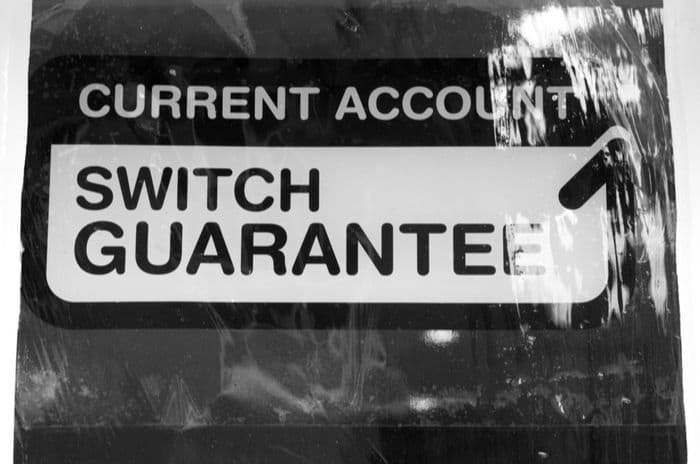Home > Money > News > Is the current account switch guarantee working?
Is the current account switch guarantee working?
A ONE year anniversary report released by the Payments Council has revealed that while the service is being seen as successful, it still hasn't boosted the number of switchers overall.

Launched in September 2013 as a response to improve competition within the UK banking industry, the Current Account Switch Service (CASS) guarantees to switch a bank account within seven working days.
At the scheme's launch just 58% of customers had heard of the service, one year on and that number has increased to 70% with an aim to top 75% by 2015. However, despite 1.1 million people switching bank accounts in the past year, this only translates to a nominal increase of 19% on the previous year.
The figures seem to indicate that customers are seeking more than just a hassle-free process in order to tempt them to move providers.
Customer service is key
A survey carried out by the Payments Council in 2012 discovered that 27% cited a better service being offered elsewhere as their reason for switching; furthermore, 25% claimed that poor service at their current bank led them to move.
This remains the case for many customers, with TNS stating earlier in the year that poor service is still a key issue and the primary cause for customers wishing to move their accounts, with 21% of people overall switching due to poor customer service.
It's also noticeable in correlations between complaints figures and the biggest net losers of 2013, which were Barclays and Lloyds. Both businesses topped the list for the largest number of complaints, with 309,494 and 256,656 complaints respectively.
So it seems the banks who perform poorly on customer service also have the highest percentage of losses.
Simplicity isn't enough
The report's findings seem to show that the complexity of the previous switching process, while complex and off-putting, wasn't the sole cause of the public's unwillingness to shop around when it comes to banking.
However, the increase in competition on the high street has led to more incentives being offered. The BBA claims that all banks have responded to CASS by actively promoting new accounts to attract new customers, which could be the reason for the modest rise in switchovers, more than the scheme itself.
The argument that it's incentives winning over switchers was highlighted at the end of 2013 when Santander, who offer the UK's leading cash back current account, gained the most new switchers in November.
In 2012, the Payments Council also found that 30% of customers left their account for a cash incentive elsewhere - this has remained a constant, with TNS confirming that the number of people seeking rewards as part of their account has risen in the last quarter.
As the majority of current accounts are seen to offer 'free banking', it seems that customers are more eager to shop around for price-sensitive products such as credit cards and savings accounts.
Triumphs and pitfalls
CASS has been a success in raising the confidence of the public, with 61% now understanding how the scheme works and 89% claiming that they felt the switchover was hassle-free.
Gerard Lemos, Executive Chairman of the Payments Council states "making the switching process easier for customers represents a vital piece of the jigsaw to improve competition in retail banking".
However, many customers feel that there is a lack of transparency where the finer details are concerned. For example, the time taken to research the account that's right for them isn't factored in to the seven day wait period, making the actual length of the switch somewhat blurred.
Likewise, the seven days only refers to working days which some consumers feel can be a little misleading. A feature of the scheme that often isn't promoted is the option to select the date you want to switch on, meaning that many customers don't make the most of this service.
Increased competition
The BBA argues that as technology changes and online banking becomes more prevalent, the selection of providers will become wider, opening up the competition far beyond the big four which currently comprises HSBC, Lloyds, RBS and Barclays, and allowing businesses such as supermarkets to break into the financial industry.
CASS has worked well in facilitating a more level playing field by increasing awareness amongst the public and forcing banks to promote their products more in order to benefit.
Receive consumer updates that matter in our newsletter
Receive consumer updates that matter in our newsletter

We are independent of all of the products and services we compare.

We order our comparison tables by price or feature and never by referral revenue.

We donate at least 5% of our profits to charity, and we aim to be climate positive.
Latest News

26 October 2022
Cost of living showing worrying trends in affordability
16 June 2022
FCA warn lenders on cost of living difficulties


